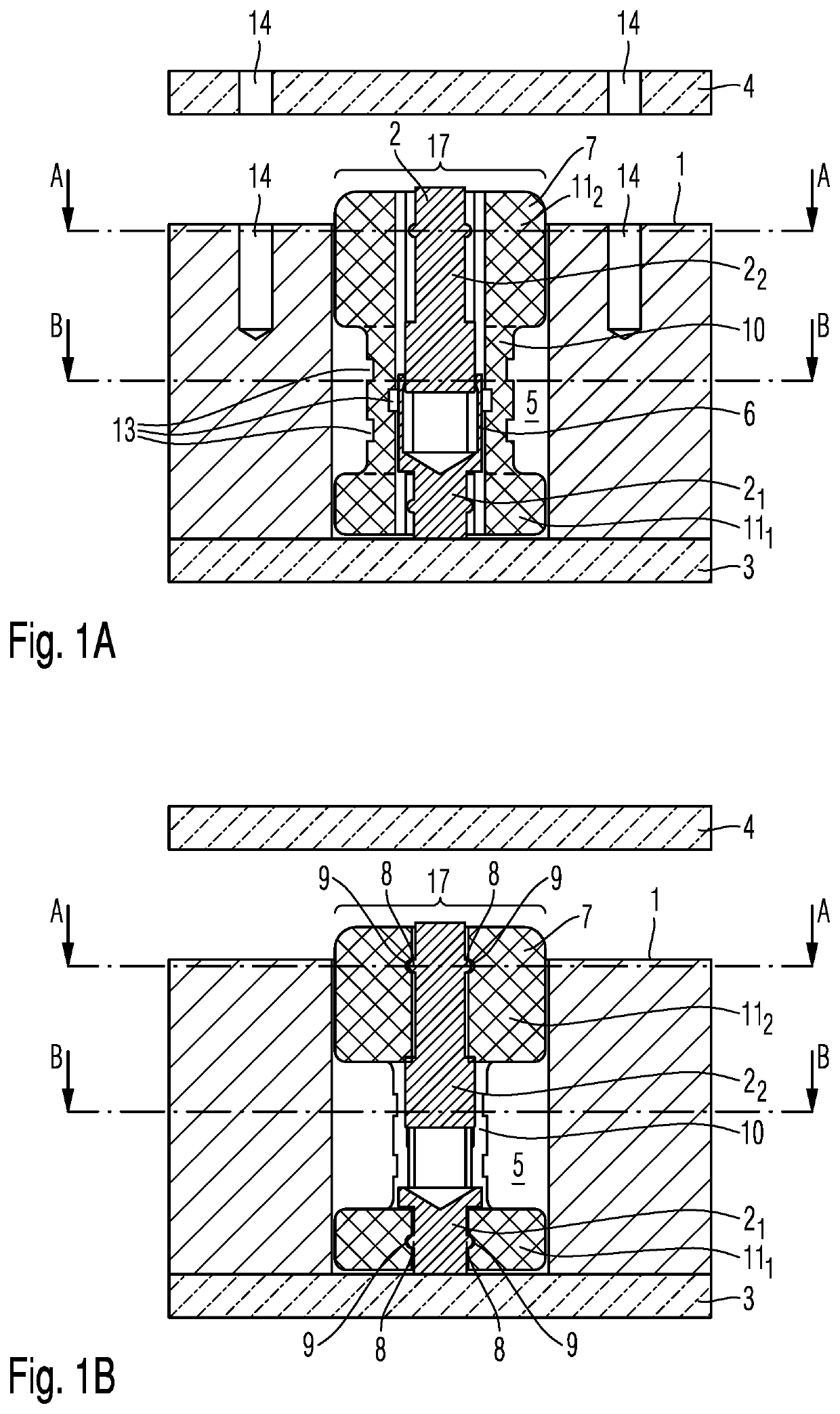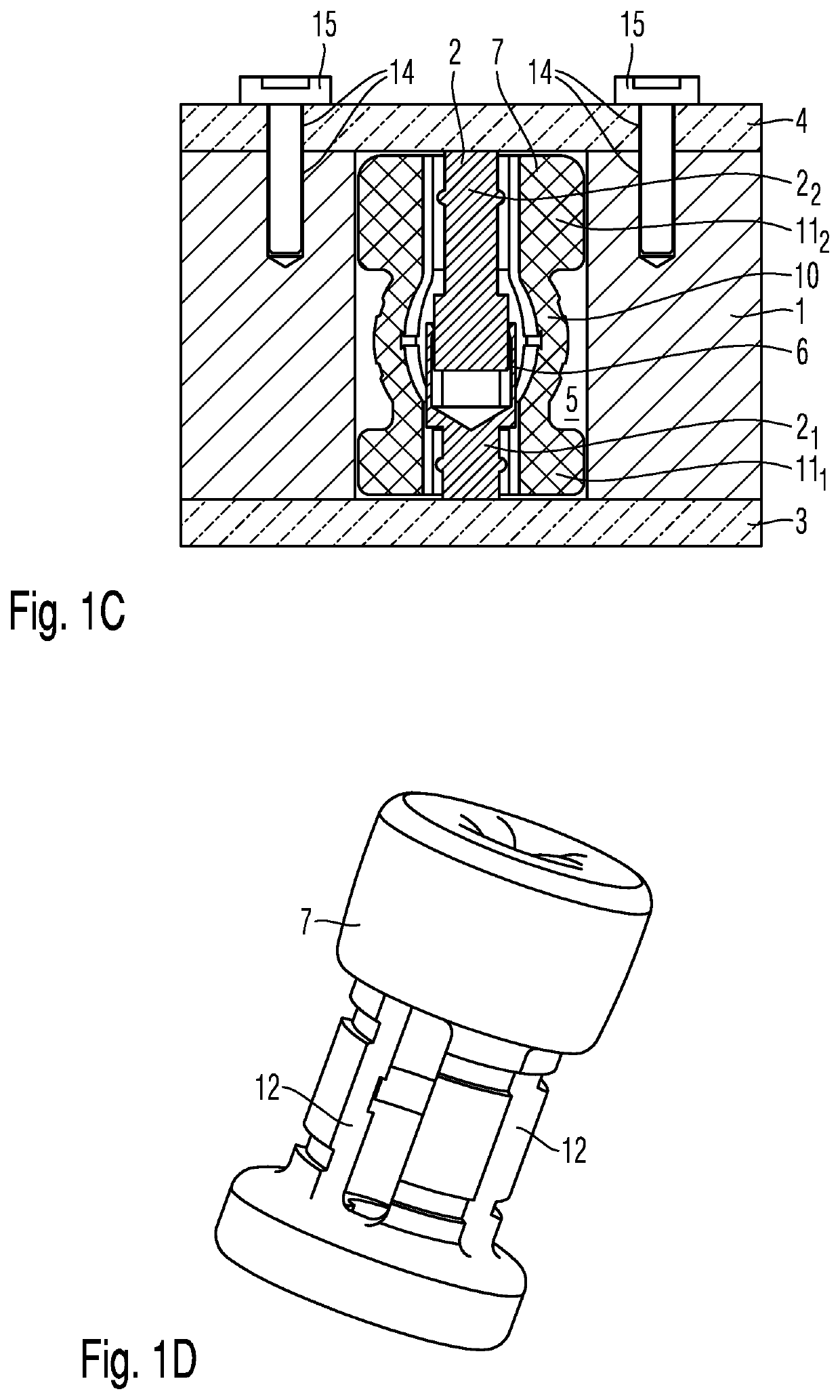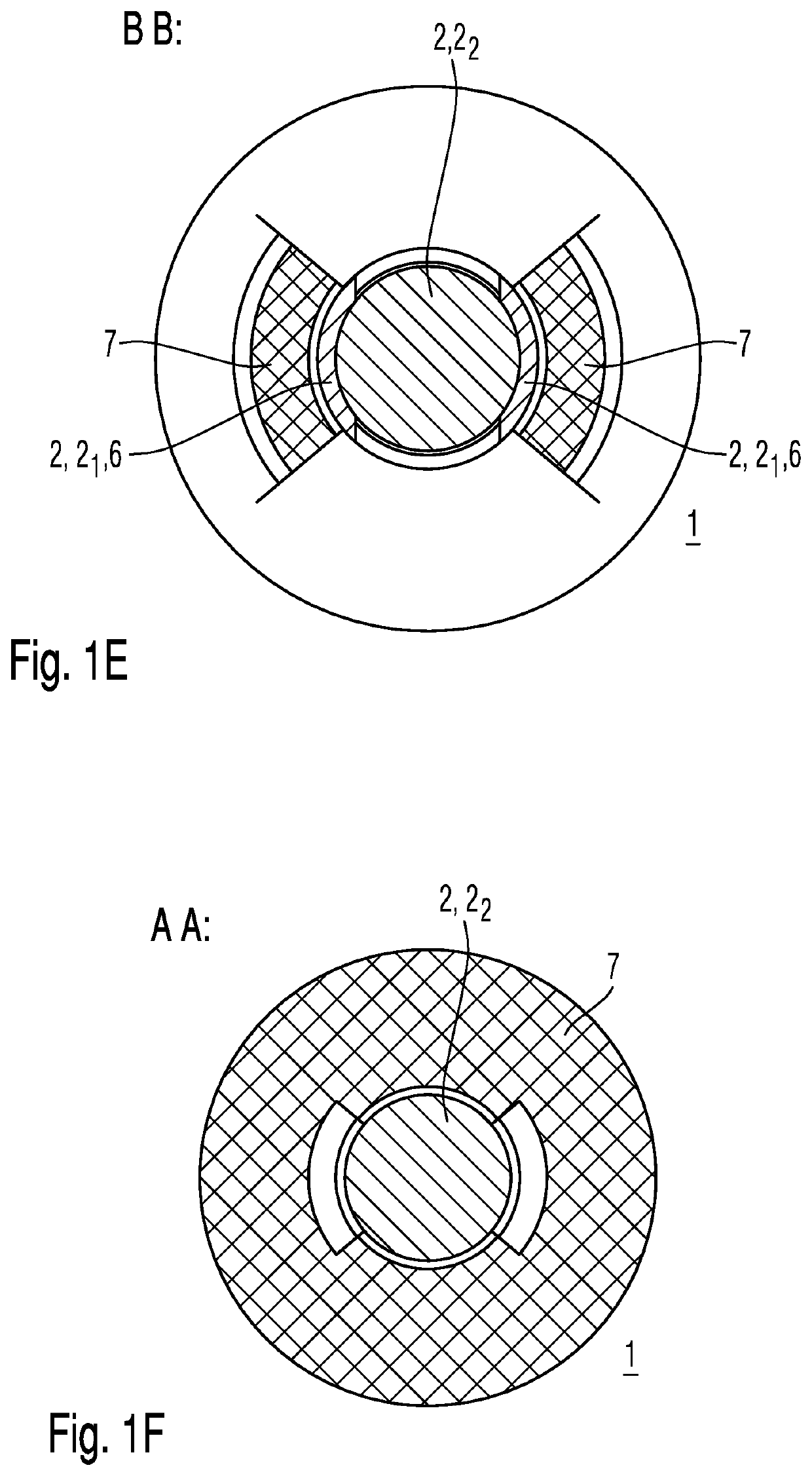Spring-loaded inner-conductor contact element
a contact element and inner-conductor technology, applied in the direction of coupling contact members, coupling device connections, coupling/insulating coupling contact members, etc., can solve the problems of increasing assembly and logistics unnecessarily, disadvantageous geometric expansion of board-to-board plug connectors, and being able to fulfill. , to achieve the effect of reducing stiffness, reducing stiffness, and reducing stiffness
- Summary
- Abstract
- Description
- Claims
- Application Information
AI Technical Summary
Benefits of technology
Problems solved by technology
Method used
Image
Examples
Embodiment Construction
[0050]Before an assembly in accordance with the present disclosure comprising a second alternative of a spring-loaded inner-conductor contact element for transmitting a differential high-frequency signal, i.e. a symmetrical high-frequency signal, between two high-frequency components will be described on the basis of FIGS. 2A to 2C, an assembly in accordance with the present disclosure comprising a first alternative of a spring-loaded inner-conductor contact element for transmitting an asymmetrical high-frequency signal will be introduced in detail on the basis of FIGS. 1A to 1F, which now follow:
[0051]In the case of a transmission of an asymmetrical high-frequency signal, the high-frequency transmission path is embodied as coaxial transmission path. For this purpose, the coaxial transmission path preferably has a metallic outer-conductor contact element 1 and a single metallic inner conductor 2, which is arranged coaxially to the outer-conductor contact element 1 within the outer-c...
PUM
| Property | Measurement | Unit |
|---|---|---|
| outer circumference | aaaaa | aaaaa |
| length | aaaaa | aaaaa |
| elastic | aaaaa | aaaaa |
Abstract
Description
Claims
Application Information
 Login to View More
Login to View More - R&D
- Intellectual Property
- Life Sciences
- Materials
- Tech Scout
- Unparalleled Data Quality
- Higher Quality Content
- 60% Fewer Hallucinations
Browse by: Latest US Patents, China's latest patents, Technical Efficacy Thesaurus, Application Domain, Technology Topic, Popular Technical Reports.
© 2025 PatSnap. All rights reserved.Legal|Privacy policy|Modern Slavery Act Transparency Statement|Sitemap|About US| Contact US: help@patsnap.com



